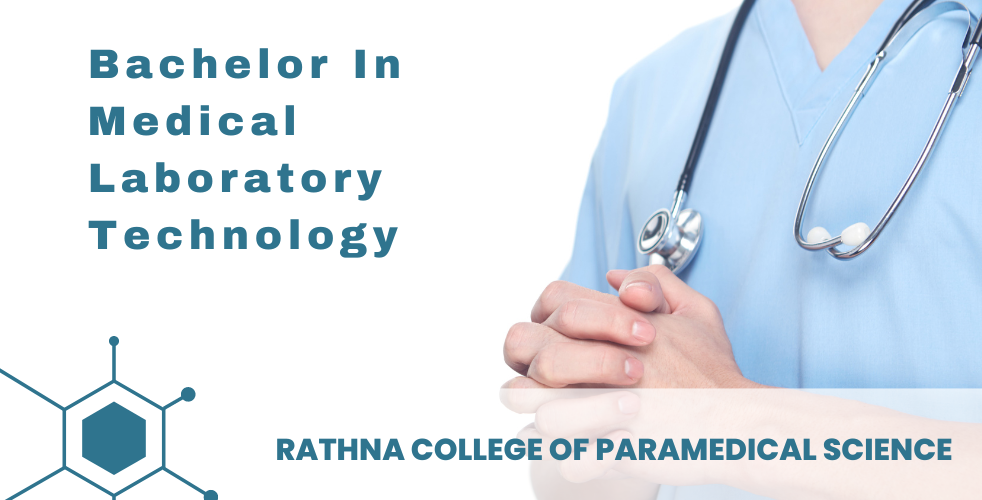
Bachelor in Medical Laboratory Technology
Over view of This course
Our Bachelor in Medical Laboratory Technology program offers a comprehensive curriculum designed to prepare students for rewarding careers in the field of laboratory medicine. Through a combination of theoretical coursework, hands-on laboratory experience, and clinical rotations, students will develop the knowledge and skills necessary to perform a wide range of diagnostic tests and analyses in clinical, research, and public health laboratories.
Program Highlights:
Foundations of Laboratory Science: Introduction to the principles and practices of laboratory science, including laboratory safety, quality assurance, and regulatory compliance.
Clinical Chemistry: Study of biochemical processes, analytical techniques, and diagnostic tests used in the analysis of blood, urine, and other bodily fluids to assess organ function and detect diseases.
Hematology & Coagulation: Examination of the cellular components of blood, including red blood cells, white blood cells, and platelets, as well as the principles of hemostasis and coagulation testing.
Microbiology & Immunology: Identification and characterization of microorganisms, including bacteria, viruses, fungi, and parasites, as well as the principles of immunological testing and serological techniques.
Clinical Microscopy: Analysis of cellular and non-cellular elements in body fluids and tissues through microscopic examination, including urinalysis, cytology, and histology.
Molecular Diagnostics: Introduction to molecular biology techniques used in the detection and analysis of genetic and infectious diseases, including PCR, DNA sequencing, and nucleic acid amplification tests.
Clinical Correlations: Integration of laboratory test results with clinical data and patient history to assist in the diagnosis, treatment, and monitoring of diseases and medical conditions.
Research Methods & Biostatistics: Training in research methodology, data analysis, and statistical techniques relevant to laboratory research and evidence-based practice.
Clinical Internship & Capstone Project: Supervised clinical rotations in affiliated healthcare facilities, allowing students to apply their knowledge and skills in real-world laboratory settings. The program culminates in a capstone project where students design and execute a research or quality improvement project under the guidance of faculty mentors.
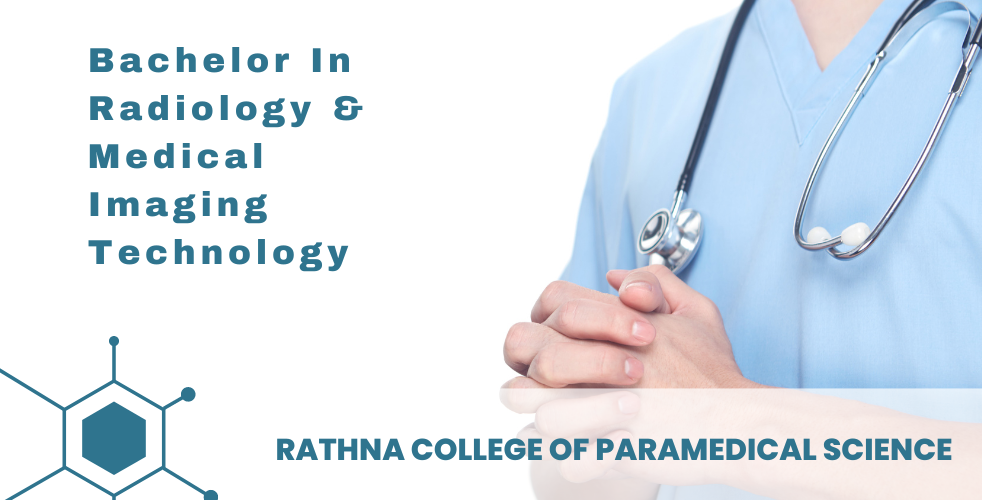
Bachelor in Radiology & Medical Imaging Technology
Over view of This course
Our Bachelor in Radiology & Medical Imaging Technology program is designed to prepare students for dynamic careers in diagnostic imaging. Through a combination of theoretical coursework, hands-on training, and clinical rotations, students will develop the knowledge and skills necessary to operate advanced imaging equipment, analyze diagnostic images, and assist radiologists in patient care.
Program Highlights:
Introduction to Radiology: Overview of radiology and medical imaging, including the history, principles, and ethical considerations of diagnostic imaging modalities.
Radiographic Techniques: Comprehensive training in radiographic positioning, exposure factors, and patient care techniques for producing high-quality diagnostic images using X-ray technology.
Computed Tomography (CT): Study of CT imaging principles, equipment operation, image acquisition techniques, and image reconstruction algorithms for cross-sectional imaging of anatomical structures.
Magnetic Resonance Imaging (MRI): Examination of MRI physics, imaging sequences, patient positioning, and safety considerations for producing detailed images of soft tissues and organs.
Ultrasound Imaging: Introduction to ultrasound physics, equipment operation, scanning techniques, and image interpretation for assessing various anatomical structures and physiological processes.
Nuclear Medicine: Overview of nuclear medicine imaging techniques, radiopharmaceutical administration, gamma camera operation, and image interpretation for functional and molecular imaging studies.
Radiation Safety & Protection: Understanding radiation safety principles, dose monitoring, shielding techniques, and regulatory compliance to ensure the safety of patients and healthcare workers.
Patient Care & Communication: Training in patient assessment, communication skills, patient education, and ethical considerations for providing compassionate care in clinical settings.
Clinical Internship & Practicum: Supervised clinical rotations in radiology departments and imaging centers, allowing students to apply their knowledge and skills in real-world imaging environments. The program culminates in a practicum experience where students gain hands-on experience under the guidance of experienced radiology professionals.
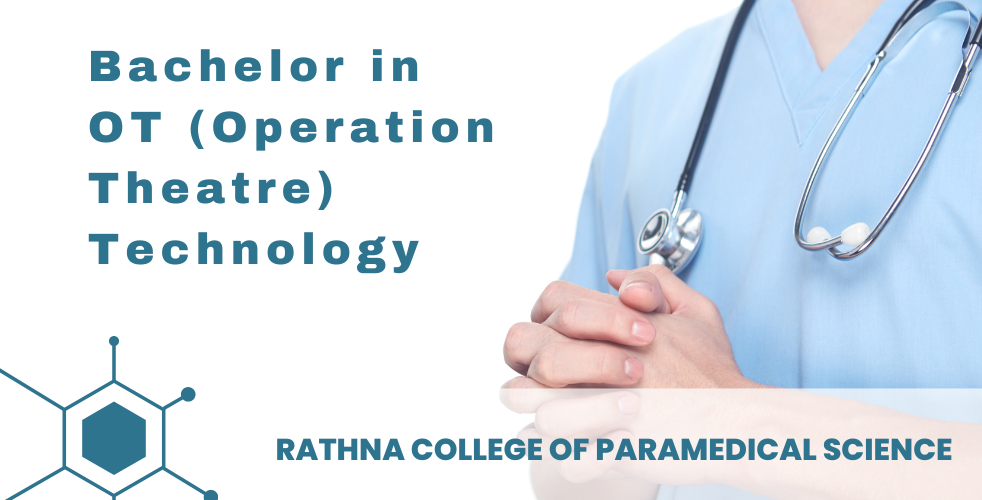
Bachelor in OT Technology
Over view of This course
Our Bachelor in OT (Operation Theatre) Technology program is designed to prepare students for dynamic careers in surgical settings. Through a combination of theoretical coursework, hands-on training, and clinical rotations, students will develop the knowledge and skills necessary to assist surgical teams, manage operating room equipment, and ensure patient safety during surgical procedures.
Program Highlights:
Introduction to OT Technology: Overview of operation theatre technology, including the role of OT technologists, surgical procedures, and the importance of maintaining a sterile environment.
Surgical Anatomy & Physiology: In-depth study of human anatomy and physiology relevant to surgical procedures, including understanding the structure and function of organs and tissues.
Surgical Instruments & Equipment: Identification, handling, and maintenance of surgical instruments, equipment setup, and troubleshooting to ensure optimal functionality during surgical procedures.
Patient Preparation & Care: Techniques for patient positioning, pre-operative preparation, draping, and infection control practices to ensure patient safety and comfort in the operating room.
Anesthesia Management: Understanding the principles of anesthesia administration, monitoring anesthesia equipment, and assisting anesthesiologists during induction, maintenance, and emergence phases of anesthesia.
Surgical Procedures: Familiarization with common surgical procedures across different specialties, including general surgery, orthopedics, gynecology, and neurosurgery, and the role of OT technologists in assisting surgical teams.
Emergency & Crisis Management: Training in emergency procedures, crisis management, and responding to unexpected events in the operating room to ensure patient safety and optimal surgical outcomes.
Ethics & Professionalism: Discussion of ethical considerations, professional standards, and legal regulations governing the practice of OT technology, including patient confidentiality and informed consent.
Clinical Internship & Practicum: Supervised clinical rotations in operating theatre settings, allowing students to apply their knowledge and skills in real-world surgical environments under the guidance of experienced surgical teams. The program culminates in a practicum experience where students gain hands-on experience and demonstrate competency in OT technology practice.
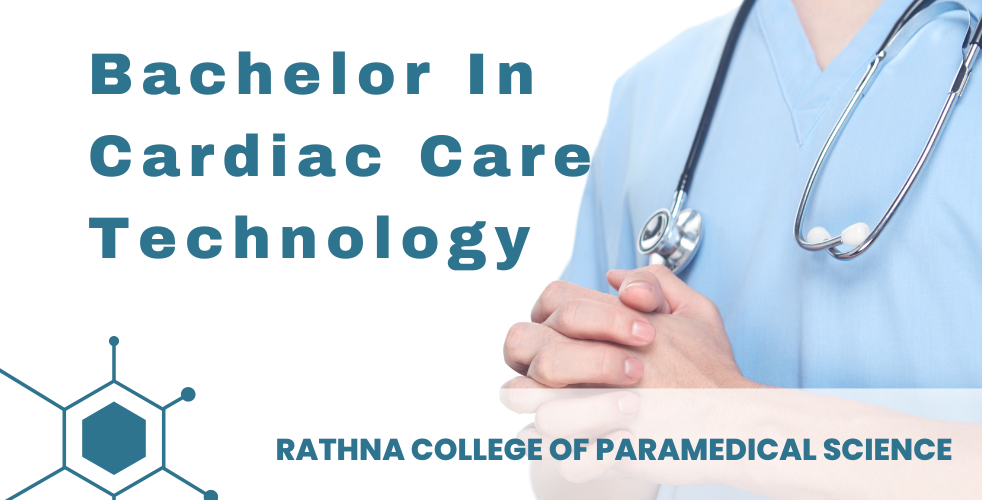
Bachelor in Cardiac Care Technology
Over view of This course
Our Bachelor in Cardiac Care Technology program is designed to prepare students for dynamic careers in the field of cardiac care. Through a combination of theoretical coursework, hands-on training, and clinical rotations, students will develop the knowledge and skills necessary to assist in the diagnosis, treatment, and management of cardiovascular conditions.
Program Highlights:
Introduction to Cardiac Care: Overview of cardiovascular anatomy and physiology, common cardiac conditions, diagnostic procedures, and treatment modalities in cardiac care.
EKG/ECG Interpretation: Comprehensive training in electrocardiography (ECG) principles, ECG lead placement, waveform interpretation, and recognition of arrhythmias and conduction abnormalities.
Cardiac Monitoring & Telemetry: Study of cardiac monitoring techniques, telemetry systems, and rhythm analysis for continuous monitoring of cardiac patients in various healthcare settings.
Cardiac Pharmacology: Understanding of cardiovascular pharmacology, including common medications used in the management of cardiac conditions, their mechanisms of action, and potential side effects.
Invasive Cardiology Procedures: Introduction to invasive cardiology procedures, including cardiac catheterization, angiography, percutaneous coronary intervention (PCI), and electrophysiology studies (EPS).
Non-Invasive Cardiac Imaging: Familiarization with non-invasive cardiac imaging modalities, including echocardiography, stress testing, nuclear cardiology, and cardiac MRI/CT scans.
Cardiac Rehabilitation: Overview of cardiac rehabilitation principles, exercise prescription, lifestyle modifications, and patient education for promoting cardiovascular health and preventing disease progression.
Critical Care & Emergency Management: Training in critical care management of cardiac patients, including assessment, hemodynamic monitoring, airway management, and response to cardiac emergencies.
Clinical Internship & Practicum: Supervised clinical rotations in cardiac care units, cardiac catheterization labs, cardiac rehabilitation centers, and other cardiovascular settings, allowing students to apply their knowledge and skills in real-world patient care scenarios. The program culminates in a practicum experience where students gain hands-on experience and demonstrate competency in cardiac care practice.
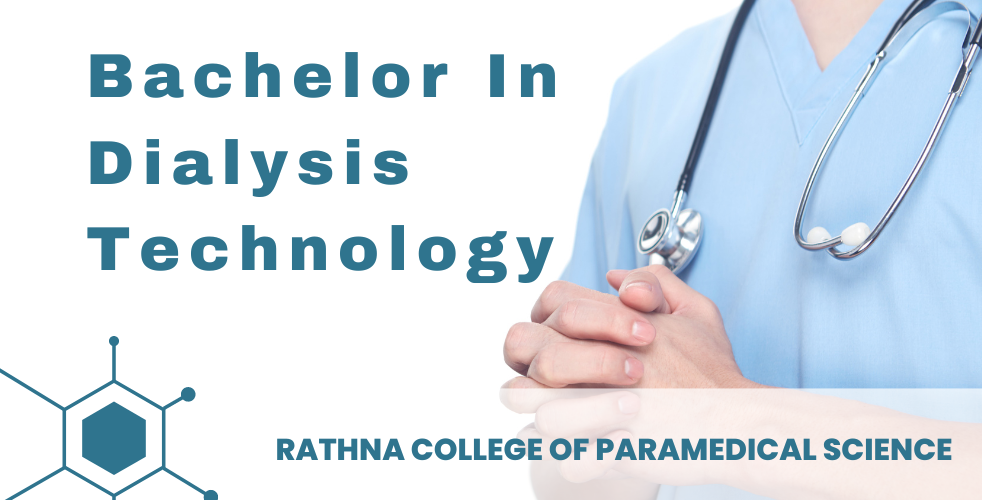
Bachelor in Dialysis Technology
Over view of This course
Our Bachelor in Dialysis Technology program is designed to prepare students for dynamic careers in renal care. Through a combination of theoretical coursework, hands-on training, and clinical rotations, students will develop the knowledge and skills necessary to operate dialysis equipment, provide comprehensive patient care, and contribute to the management of patients with renal failure.
Program Highlights:
Introduction to Renal Physiology: Overview of renal anatomy and physiology, including the structure and function of the kidneys, renal circulation, and the formation of urine.
Principles of Dialysis Therapy: Study of the principles of dialysis therapy, including hemodialysis, peritoneal dialysis, and continuous renal replacement therapy (CRRT), and their indications, contraindications, and complications.
Dialysis Equipment & Technology: Comprehensive training in the operation, calibration, and maintenance of dialysis machines, water treatment systems, and ancillary equipment used in dialysis treatment.
Patient Assessment & Monitoring: Techniques for patient assessment, vital sign monitoring, and evaluation of dialysis treatment parameters to ensure patient safety and optimize treatment outcomes.
Fluid & Electrolyte Balance: Understanding of fluid and electrolyte balance, acid-base balance, and the role of dialysis in managing imbalances in patients with renal failure.
Nutritional Management: Overview of nutritional requirements for patients undergoing dialysis therapy, dietary restrictions, and counseling to promote optimal health and well-being.
Complications & Emergency Management: Identification and management of common complications associated with dialysis therapy, including hypotension, arrhythmias, vascular access issues, and dialysis-related infections.
Ethical & Legal Considerations: Discussion of ethical considerations, patient rights, informed consent, and legal regulations governing the practice of dialysis technology.
Clinical Internship & Practicum: Supervised clinical rotations in dialysis centers, nephrology clinics, and renal care units, allowing students to apply their knowledge and skills in real-world patient care scenarios. The program culminates in a practicum experience where students gain hands-on experience and demonstrate competency in dialysis technology practice.